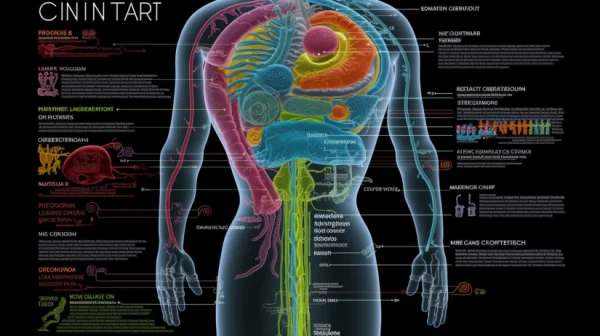
Hello everyone. It's Dr. Justin Marchegiani here. I hope you're all doing fantastic today! In our recent live podcast, we delved into the fascinating world of gut-healing nutrients, highlighting the top seven essential nutrients for optimal gut health. Today, I’ll share my top three picks from that list and dive into their benefits and mechanisms. Additionally, we'll explore some live Q&A from the session to address common concerns and questions.
Before we dive into the nutrients, it's crucial to understand why maintaining gut health is vital. The gut is not just a site for digestion but a complex ecosystem influencing overall health, immunity, and even mental well-being. Stress, diet, and lifestyle choices can lead to conditions like gut permeability, commonly known as leaky gut, contributing to inflammation and autoimmune issues.

One of the major reasons for gut stress is catabolic physiology, where the body, under stress, breaks down amino acids essential for energy production and tissue repair. Glutamine stands out as a crucial amino acid in this context.
Glutamine is vital for:
Studies indicate that intense aerobic exercise can increase gut permeability due to the heightened cortisol and adrenaline levels, leading to a depletion of glutamine. This scenario highlights the importance of supplementing with glutamine to restore gut integrity and function.

Zinc, particularly in the form of zinc carnosine, plays a significant role in gut health.
Zinc aids in:
My GI Restore formula includes zinc carnosine, providing 10 to 20 milligrams daily, which is incredibly effective in repairing and maintaining gut health, particularly for those undergoing strenuous exercise routines.

Aloe and Deglycyrrhizinated Licorice (DGL) are powerful natural substances known for their anti-inflammatory and antioxidant properties.
These two nutrients work synergistically to stabilize cells and prevent free radical damage, promoting a healthy gut environment.

Functional medicine lab testing offers a detailed and personalized approach to understanding and treating gut health issues. Unlike conventional tests, functional medicine tests aim to identify root causes by analyzing various biomarkers. This comprehensive testing can reveal imbalances and deficiencies that may not be apparent in standard tests.
For instance, tests like comprehensive stool analysis, organic acids tests, and food sensitivity panels provide in-depth insights into gut flora, metabolic function, and potential food intolerances. These tests can detect pathogens, evaluate gut permeability, and assess the overall microbial environment in the gut. By identifying specific issues, personalized treatment plans can be created, focusing on restoring balance and improving gut function.
Incorporating functional medicine lab testing into your healthcare regimen ensures that treatment is tailored to your unique needs, addressing underlying issues rather than merely alleviating symptoms. This approach not only enhances gut health but also supports overall wellness, making it a crucial component of an effective gut health strategy.

During the live Q&A session, several key issues were addressed:
For those who engage in intense physical activity, it's essential to adjust exercise routines that overly stress the body. Supplementing with nutrients like glutamine and zinc can help mitigate the negative effects of chronic aerobic exercise on gut health.

Gut problems can deplete essential B vitamins and amino acids necessary for neurotransmitter production, leading to anxiety and cognitive issues. Ensuring a diet rich in these nutrients and considering supplements can improve both gut health and mental well-being.

![]()
Maintaining gut health is a multifaceted approach involving diet, lifestyle, and targeted supplementation. By understanding the critical role of nutrients like glutamine, zinc, aloe, and DGL licorice, you can take proactive steps to enhance your gut health and overall well-being. Incorporating functional medicine lab testing can provide personalized insights, ensuring a more effective and tailored approach to treatment.
For those looking to take a deeper dive into their gut health, I highly recommend reaching out to me for a consultation. By visiting www.justinhealth.com/free-consult, you can schedule a free consultation to discuss your specific health concerns and explore a tailored treatment plan.

Let us know in the comments what has worked for you in improving your gut health. For more in-depth discussions, check out our full podcast and subscribe for more insightful content.
=====================
Recommended Products: